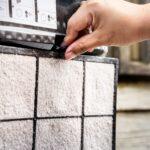Here in the South Hills of Pittsburgh, we’re grateful that we can turn on the taps in our homes, and fresh, clear running water reliably comes out. Still, though, most of our customers are savvy about their health. They don’t just assume that mostly clear water is mostly healthy water. Many of them have asked from time to time what might be coming out of their taps besides pure H2O.
If you’re asking yourself the same question, you might be wondering, do you need a whole-home water filtration system?
In today’s post, we’ll explore whether investing in a whole-home water filtration system is the right choice for you and your family. Here are the questions you may have that we’ll answer:
- What is a Whole-Home Water Filtration System?
- What Impurities Does a Whole-Home Water Filtration System Remove?
- How Does a Whole-Home Water Filtration System Work?
- What are the Benefits of a Water Filtration System?
- What Do Water Filtration Systems Cost?
Let’s get started!
What is a Whole-Home Water Filtration System?
A whole-home water filtration system is a product designed to remove impurities from your home’s water supply. It provides you and your family with cleaner and safer water from every faucet for all your personal and household uses.
The impurities that a water filtration system removes include a range of minerals, chemicals, sediment, bacteria, and other pollutants that affect the taste, odor, color, and overall quality of your water. We go into more detail on these in the next section.
A whole-home water filtration system is usually installed indoors at the point of entry for your main water supply. This is often your utility area, basement, or garage. The system is integrated with your household plumbing so that all the water entering your home is filtered.
Here are the basic components that make up a whole-home water filtration system:
- An inlet/intake valve where untreated water from the main water supply enters the filtration system.
- A pre-filter or strainer that serves as the first line of defense, capturing larger particles like sediment and debris.
- A filter media or cartridge that serves as the core component for removing impurities. The filter media depends on the type of filtration system and may be an activated carbon filter, a ceramic filter, an ion exchange resin, a reverse osmosis membrane, a UV filter, or a combination of these filters.
- A filter housing that encases and protects the filter media.
- A pressure gauge or monitoring system that indicates when it’s time to replace or clean the filter.
- An outlet valve that allows the filtered water to exit the system and be distributed throughout your home.
- Some systems also have a storage tank that holds a supply of filtered water for on-demand use.
What Impurities Does a Whole-Home Water Filtration System Remove?
A whole-home water filtration system can filter out a huge range of impurities that are often present in your area’s water supply. If you’re concerned about any of the following in your water, you may want to invest in a whole-home water filtration system:
Chlorine
Chlorine is often added to municipal water supplies as a disinfectant. It can affect the taste and odor of water, plus dry out your skin and hair.
Chloramines (Chlorine Compounds)
Chloramines are also disinfectants added to municipal water supplies. They can cause taste and odor issues similar to chlorine.
Fluoride
Fluoride is added to public water supplies as a public health measure: it prevents tooth decay. While fluoride is beneficial for dental health, excessive fluoride can cause dental fluorosis, which is tooth discoloration; and skeletal fluorosis, which is a chronic bone disease characterized by increased bone density and ligament calcification. It can cause pain, stiffness, and decreased mobility.
Lead
Lead can enter water through old and crumbling plumbing systems. It poses severe health risks, including cognitive and developmental issues, especially in children.
Mercury
Mercury can find its way into water sources from industrial pollution, improper waste disposal, and environmental runoff. It negatively affects the development and function of almost every system in the human body: neurological, cardiovascular, respiratory, endocrine, digestive, and more.
Arsenic
Arsenic is present in the earth’s crust and sometimes enters groundwater because of geological processes that release arsenic from rocks and minerals. When it’s in your water supply, arsenic causes health problems such as skin issues, developmental problems, and an increased risk of certain cancers.
Volatile Organic Compounds (VOCs)
VOCs include benzene, toluene, and xylene. They end up in the water supply due to industrial pollution and the use and disposal of household products. VOCs can cause short-term discomfort like headaches and nausea. Long-term exposure to VOCs can cause more severe neurological health problems.
Trihalomethanes (THMs)
THMs are chemical compounds that can form when chlorine, chloramine, and other disinfectants used in the water treatment process react with organic matter such as decaying vegetation and algae. Exposure to THMs has been associated with health risks such as cancer, low birth rates, premature births, skin issues, respiratory problems, and liver and kidney damage.
Pesticides and Herbicides
Various types of pesticides and herbicides used in agriculture can contaminate water sources with toxins. These toxins then accumulate in the human body, causing a host of digestive, metabolic, and longer-term health issues.
Pharmaceuticals and Personal Care Products (PPCPs)
PPCPs enter water sources through human use and improper disposal. Long-term exposure to trace amounts may pose risks to human health and aquatic life.
Microorganisms
Bacteria, viruses, and other harmful microorganisms enter municipal water supplies mainly through contamination at different stages of the water treatment and distribution process. Whole-home filtration systems remove these microorganisms, including E. coli, salmonella, legionella, norovirus, rotavirus, adenovirus, hepatitis A, and all types of parasites.
How Does a Whole-Home Water Filtration System Work?
Whole-home water filtration systems use a combination of physical and chemical processes to purify your household water. The most common filtration methods include:
Mechanical Filtration
This involves physically trapping larger particles in water, like sediment and debris.
Activated Carbon Filtration
This method absorbs and traps organic compounds, chlorine, and other chemicals that affect taste and odor.
Reverse Osmosis (RO)
RO systems can remove up to 99% of many types of contaminants and is especially effective for heavy metals like lead, mercury, and arsenic. It provides exceptionally pure water via a semipermeable membrane that blocks impurities based on their size and charge.
Ion Exchange
The process of ion exchange purifies water via a resin material that’s strategically selected to attract and capture unwanted charged particles and swap them with replacement particles that treat the particular water supply.
What are the Benefits of a Water Filtration System?
When asking yourself if you need a whole-home water filtration system, the impurities that such systems remove—which we listed above—may be enough to convince you. But what actually happens when those impurities are gone from the water you use for drinking, cooking, cleaning, and bathing? The answer is a lot of benefits that improve your quality of life:
Improved Appearance, Taste, and Odor of Your Water
Clean, pure water is clear in appearance. You’ll notice a lack of cloudiness or grayness in your glass and in your ice cubes. It also tastes refreshing and neutral without any aftertaste of metal or any other substance. It smells neutral too. Clean water does not have a noticeable odor.
Improved Health
Without the presence of various microorganisms and chemicals in their water, many consumers report immediate relief from things like headaches and stomach upset. And all consumers with a whole-home water filtration system reduce their and their kids’ risks for various long-term health issues by reducing their daily, ongoing exposure to a host of harmful impurities.
Extended Appliance Lifespan
By keeping harsh minerals out of your household water, you’re protecting your appliances and fixtures from the buildup that wears them out faster. Your big-ticket items like dishwashers, washing machines, and water heaters will serve you longer, and so will your smaller items like coffee makers and shower heads.
Healthier Skin and Hair
Filtered water is gentler on your body. It doesn’t contain the chemicals that rob your skin and hair of moisture. Consumers report relief from all types of dermatitis.
Reduced Bottled Water Usage
When your water is clean and healthy, you don’t need to buy bottled water, which saves money and is kinder to the environment.
What do Water Filtration Systems Cost?
The cost of water filtration systems can range from around $100 (or even a bit less) to $2k or more. The price of any particular model depends on features like:
- Whether it actually treats water throughout your home. Inexpensive filtration systems are often point-of-use systems rather than whole-home systems.
- The types of filtration the system uses, which govern the specific contaminants it removes.
- The number of filtration phases it has, typically from one to three, with more filtration phases enabling more thorough and finer filtering.
- The size of the system, meaning the number of gallons it treats, the number of bathrooms it serves, and its flow rate.
- The accessories it comes with, such as built-in fittings or extra filters.
- The materials in its construction, such as stainless steel vs. plastic.
- Its ease of installation.
- The maintenance it requires, such as filter change or cleaning frequency and simplicity.
- The warranty it comes with, and how restrictive or generous it is.
_____________
If you’re in the Pittsburgh area and you’re considering a whole-home water filtration system, reach out to us! We can help you determine the type and size that will work best for your home and your family. Plus we’ll install it expertly, maintain it so you don’t have to, and provide fast support if you ever need it.
Call us at 412-952-5923. You can also contact us via our website at any time. We look forward to serving you!





